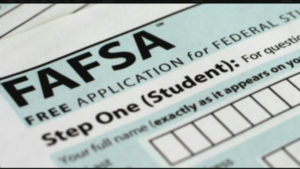WHAT IS FINANCIAL AID FOR COLLEGES?
Financial aid is a way that students get help paying for school. It is available from a variety of sources for college, career school, graduate school, and professional school.
WHERE DOES THE FINANCIAL AID COME FROM?
Financial aid can come from many places, and each requires certain eligibility considerations.
- the U.S. federal government
- the state where you live
- the college you attend, or
- a nonprofit or private organization.
In this section, we will discuss the Federal Financial Aid.
WHAT DO I NEED TO DO TO APPLY FOR FEDERAL FINANCIAL AID?
Before you can apply for Federal Financial Student Aid of any kind, you will need to fill out a form called FAFSA – Free Application for Federal Student Aid
WHERE CAN I FIND THE FAFSA APPLICATION?
You can find the FAFAS application as well as information on how to fill it out here:
https://fafsa.ed.gov
AM I ELIGIBLE FOR FEDERAL FINANCIAL AID WITH A CRIMINAL BACKGROUND?
Once you’re released, most eligibility limitations will be removed. In fact, you may apply for aid before you’re released so your aid is processed in time for you to start school.
Drug convictions no longer affect federal student aid eligibility. As of July 1, 2023, if you are subject to an involuntary civil commitment for a sexual offense, you may qualify for a Federal Pell Grant
IF I AM ON PROBATION OR PAROLE, AM I ABLE TO GET FEDERAL FINANCIAL AID?
Yes. If you are on probation or parole or living in a halfway house, you may be eligible for federal student aid.
WHAT OTHER CONVICTIONS MIGHT AFFECT MY ELIGIBILITY FOR FEDERAL FINANCIAL STUDENT AID?
If you have been convicted of a forcible or non-forcible sex offense and you are subject to an involuntary civil commitment after your incarceration for that offense, you are ineligible to receive a Federal Pell Grant. However, you are still eligible for other types of federal student aid.


